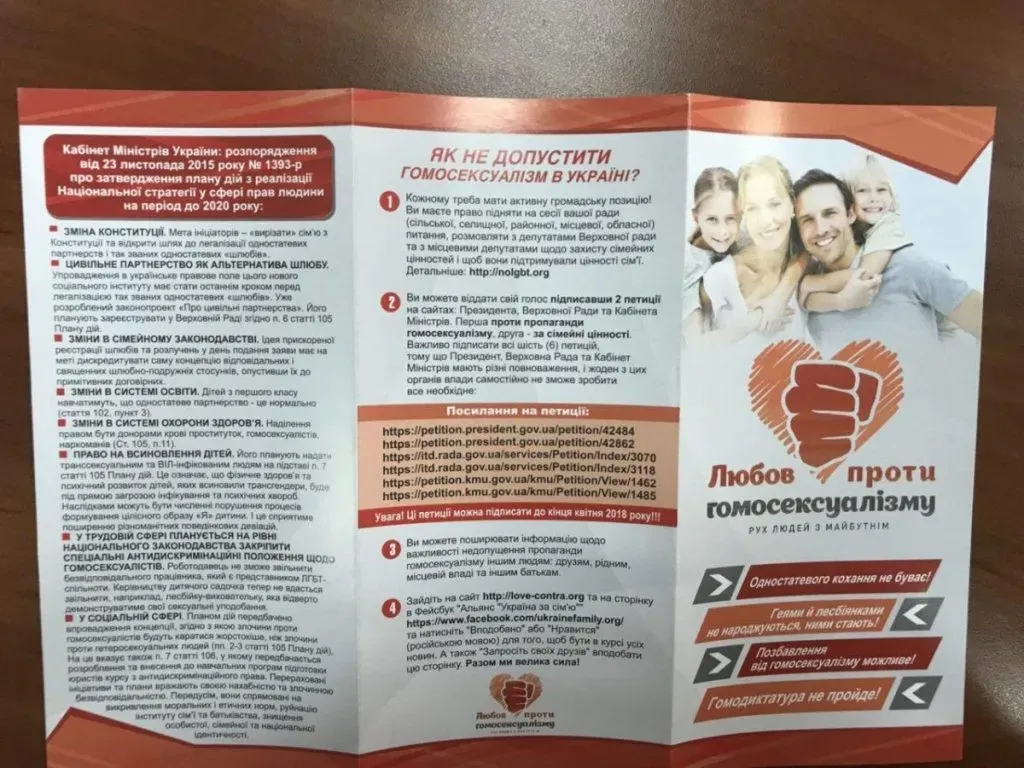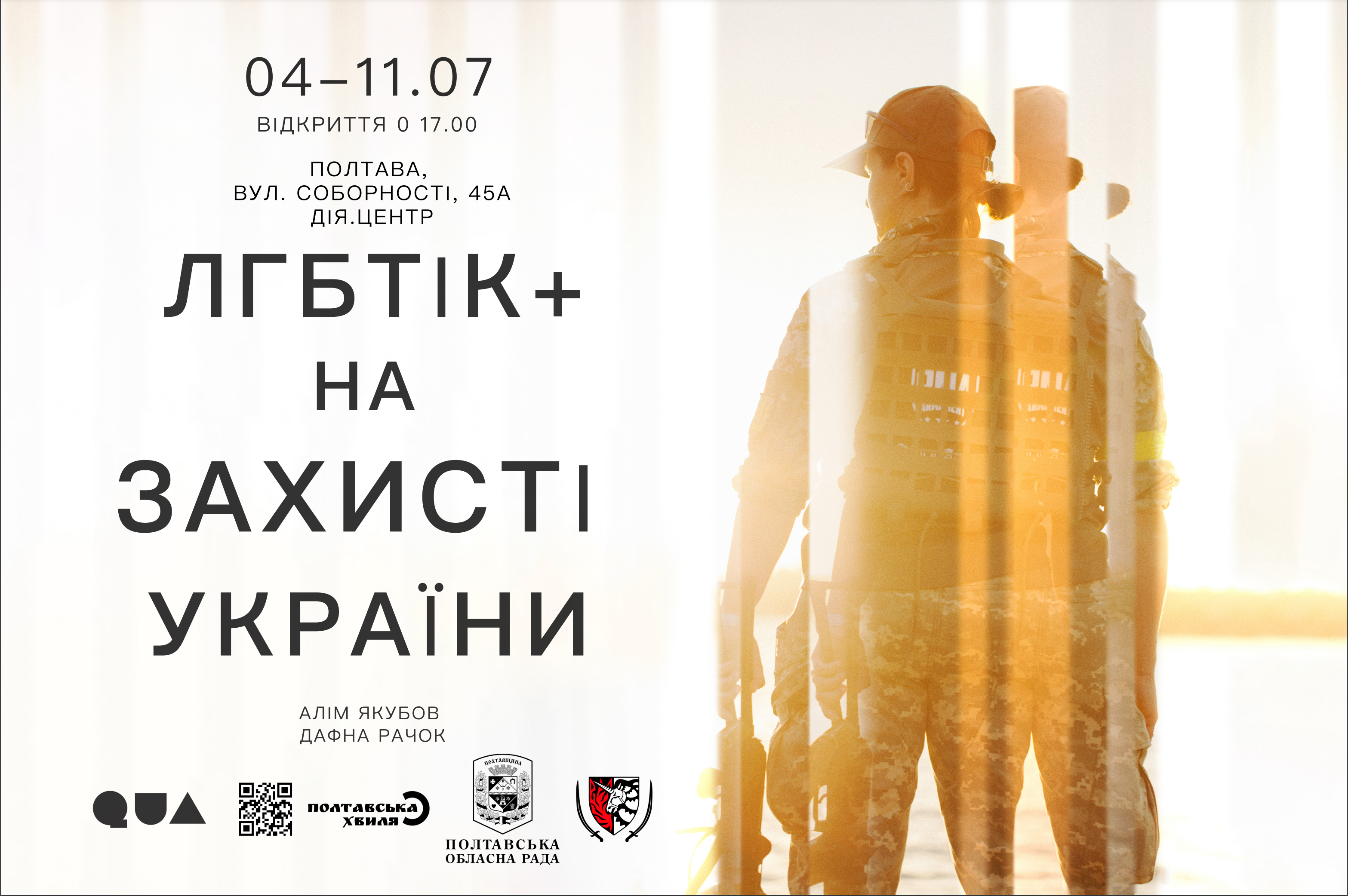October 1, 2021
Bogdan Globa: HOW RUSSIA EXPORTS HOMOPHOBIA INTO UKRAINE
During the Euromaidan protests, Russia deliberately stoked anti-LGBT bigotry in Ukraine as part of a campaign to delegitimize Western values and keep Ukraine in Russia’s sphere of influence. These deliberate attacks must be publicized and taken seriously by the United States and others. If they aren’t, Russia will continue to sow division within and among democratic nations.
A HISTORY OF INTERVENTION
Last February, Kyiv, Ukraine recognized the fifth anniversary of the Euromaidan protests. During the protests, state law enforcement officials killed more than a hundred peaceful protesters, the investigation of which is still ongoing. One overlooked aspect of the investigation is how Russia exploited the LGBT community in Ukraine with the goal of breaking Ukrainian solidarity.
Mass protests started in November of 2013 after then-President Viktor Yanukovych refused to sign an Association Agreement with the European Union, which meant Ukraine lost the chance to gain visa-free travel between EU member states and other economic benefits. This dampened the hopes of millions of Ukrainians yearning for liberal democratic reforms. The Association Agreement was also seen as the first step toward the European integration. Though de jure Association Agreements do not necessarily lead to the EU membership, most Eastern European member countries went through this process.
Initially, the protesters were mostly students and young people. However, after November 30, when a Special Forces unit violently dispersed the Euromaidan supporters, more than a million Ukrainian citizens took to the streets to protest the authorities’ abuse of power.
As the mass protests grew, pro-Russian groups organized and financed a counter movement called anti-Maidan while a small group of pro-Russian individuals set up a protest camp at the square in front of Verkhovna Rada, the Ukrainian Parliament. At the same time, pro-Russian organizations such as the Ukrainian Choice attempted to split Ukrainian society between western and eastern loyalties by lobbying for laws to restrict “homosexual propaganda.” The efforts were meant to monger fear of pro-Ukrainian European integration and NATO accession, while pushing citizens toward the Eurasian Customs Union with Russia and Belarus — back to the USSR, in other words. To intimidate citizens, the pro-Russian organizations targeted the LGBT community. For example, Love Against Homosexuality, a conservative civil society organization, started a mass media campaign against the LGBT community. During the campaign, they used printed posters, organized protests, and leaflets distributed in subway stations warning that if the Association Agreement is signed, European gays will take Ukrainian children from heterosexual families. Love Against Homosexuality was joined by the organization Ukrainian Choice, which launched its own anti-LGBT campaign in the Kyiv subway.
 One of the leaflets of the conservative organization Love Against Homosexuality. It contains the following messages: Same-sex love does not exist; you are not born LGBT, you become it; getting rid of homosexuality is possible; homosexuality will not pass. (Photo from the author)
One of the leaflets of the conservative organization Love Against Homosexuality. It contains the following messages: Same-sex love does not exist; you are not born LGBT, you become it; getting rid of homosexuality is possible; homosexuality will not pass. (Photo from the author)
RUSSIAN ANTI-LGBT PROVOCATIONS IN UKRAINE
In early 2014, pro-Russian organizations arranged a fake “Gay Parade,” hiring people to carry the rainbow flag and other LGBT symbols in the center of Kyiv to foment clashes with pro-European protesters. The organizations launched a second parade at Maidan Nezalezhnosti, the epicenter of the Revolution of Dignity. Extreme right-wing organizations (present in large numbers at Maidan), hoped it would cause a violent confrontation between protesters and the fake LGBT activists, thereby dividing the Euromaidan protests into two camps, one moderate-liberal and one right-wing. This, in theory, would turn Western political actors against Euromaidan as such a conflict would demonstrate the protest movement was not aligned with European values. To make the provocation more successful, there is evidence that Russian agents even recruited several Russian drag queens, who encouraged participation in the fake pride parades.
Thanks to the prompt reaction of Ukrainian LGBT activists, it was possible to avoid violence. The LGBT activists held a counter-press conference, published several press releases, and spoke in Independence Square calling on other activists to avoid physical confrontation with the provocateurs. A parliamentary investigation later revealed that anti-LGBT provocations were organized by Russian agents of the Russian Federal Security Service in cooperation with officials from the Ukrainian Security Service, the Ukrainian counterintelligence agency.
In the subsequent months, pro-Russian agents of influence in Ukraine — non-governmental organizations, political experts, and politicians cozy with Moscow — actively spread Russian messages in the media, intimidating Ukrainians with different falsehoods about the LGBT community. Russia used multiple instruments, from political lobbying to media campaigns, to convey anti-LGBT messages. On repeated occasions, Ukrainian members of Parliament registered bills prohibiting the promotion of homosexuality, modeled on similar anti-LGBT legislation in Russia. In addition, advertising campaigns were launched in the public transportation systems and on the streets of the largest cities, linking association with the EU to the legalization of gay marriages.
Experts and LGBT activists saw that much of the anti-LGBT activities in Ukraine, although initiated by different organizations, agents, and members of Parliament, clearly originated from Moscow. For example, far-right, militaristic, and nationalist groups such as C14, White Hammer, and the National Squad use the same anti-LGBT rhetoric and talking points as Russia: they oppose Ukraine’s accession to the EU and NATO, speak about “traditional” family values, and call for physical violence against LGBT and other minority groups. The founder of the organization Ukrainian Choice also has direct family ties to Putin, who is the godfather of the founder’s daughter.
Despite the evidence, the Ukrainian government and law enforcement did not investigate the activities of anti-LGBT groups as a Russian effort to split Ukrainian society and keep the country in Russia’s sphere of control. The Ukrainian Parliament also did not appoint an independent counsel — similar to the Mueller investigation in the United States — to study Russian interference in Ukrainian politics. However, it is clear to Ukrainian human rights experts and LGBT activists that Russia’s primary export is not just natural gas, but homophobia.
CHEAP GAS OR DEMOCRACY?
Five years since the Revolution of Dignity began, it is evident the war in Ukraine is just one of Russia’s attacks on the democratic world. We have already witnessed how Russia has exported anti-LGBT policies to other countries in Eastern Europe and the United States, continuing to provoke internal conflict by spreading divisive disinformation about Western values. The United States and other democratic countries face a global challenge: Can we appropriately respond to Russia’s attempts to delegitimize Western values? After all, the Russian regime does not simply export homophobia and transphobia to the world, it tries to question the foundation of democracy by offering to replace respect, love and acceptance with hatred.
The Op-ed was published on the Georgetown Public Policy Review web portal in March 2019.
We seek to assist Ukrainian LGBTQ + individuals living in the US and Canada to integrate, adapt, and productively contribute to American society.
November 25, 2023
STUCK IN LIMBO: THE UKRAINE GOVERNMENT LEAVING THE LGBTQI+ COMMUNITY BEHIND PROGRESS FOR YEARS
Read more
June 28, 2023
A photo exhibition LGBTIQ+ in defense of Ukraine will open in Poltava
Read more
January 22, 2023
Maksym Kasyanchuk: Now all of Ukraine is feeling a little bit of what we felt in Mariupol
Read more
January 14, 2023
Photo Exhibition in Washington DC: LGBTIQ+ in defense of Ukraine
Read more
